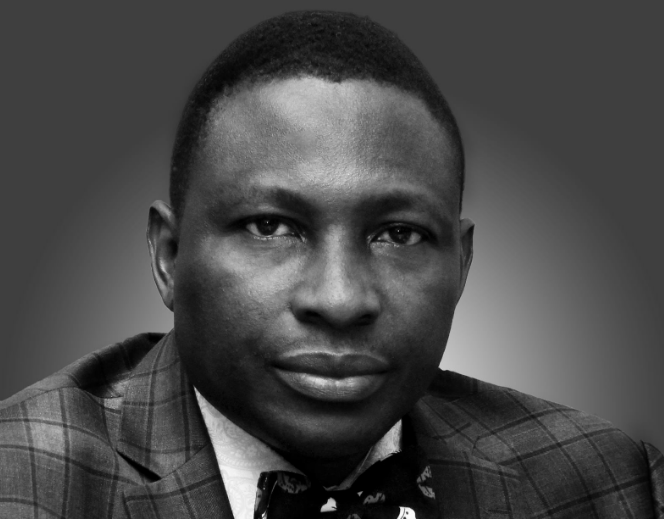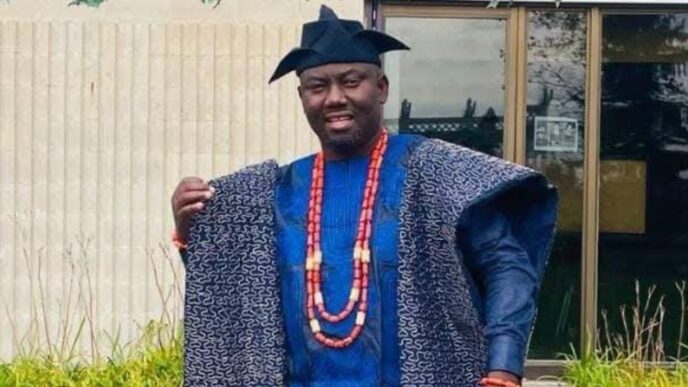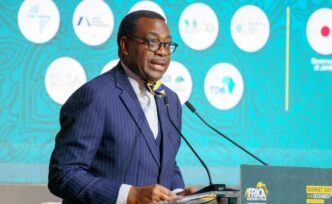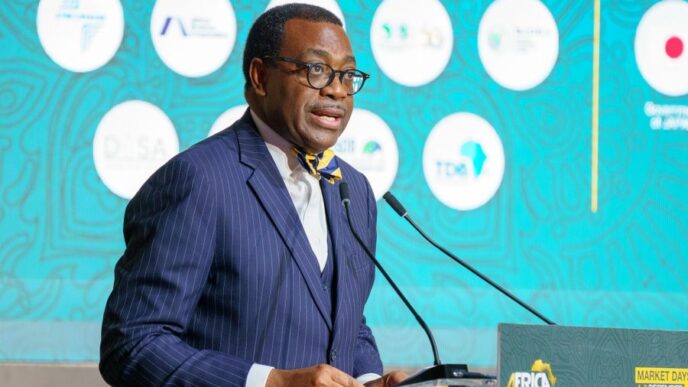A year ago, Mr Olanipekun Olukoyede, chairman of the Economic and Financial Crimes Commission (EFCC), openly lamented the “craze and quest for gratification, bribes and other compromises” by some of the commission’s investigators. “They are becoming too embarrassing and this must not continue,” he said. Monday last week, the EFCC dismissed 27 officials over alleged fraudulent activities and misconduct. Two days later, the agency detained 10 officers of the Lagos zonal command over alleged theft of operational items. Now I am beginning to take Olukoyede more seriously about his pledge to cleanse the agency of corrupt elements. It is non-negotiable.
Things had gone so bad with the EFCC that some of its offices had started competing with a typical police station where extortion and impunity are common. The EFCC, as a special body established to tackle corruption, cannot afford to become a cesspool of decay. That would be exceptionally tragic. Many Nigerians have lost faith in the commission over the years. It is common sense: if the anti-corruption agency is itself full of corrupt officials, how can it use corruption to fight corruption? I am happy with Olukoyede’s recent crackdown on the bad eggs in the institution, but I would say the job has just started. He has to do a regular house-cleaning exercise while staying above board himself.
Thankfully, Olukoyede is also aware of the common scam in which someone would pose as an agent of the EFCC chairman and ask for some crazy amount of money to help stop or stall an investigation. Two persons said to be members of a syndicate were recently arraigned on allegations of demanding $1 million from Mr Mohammed Bello-Koko, former MD of the Nigerian Ports Authority (NPA), for onward delivery to Olukoyede to give Bello-Koko “soft landing” on an investigation that never existed. It could be that this sinister trade was real at some point in the commission’s history — let’s not forget the fact that some of the chairmen have been removed over allegations of corruption.
If someone says he is acting on behalf of the chairman and asks for bribe to stop an investigation and, indeed, the probe is halted after the “something” is delivered, how would the suspect not believe the boss is involved? I was also shocked to read that some EFCC officials were reportedly asking for as much as N60,000 bribe from not-for-profit organisations before issuing the Special Control Unit against Money Laundering (SCUML) certificate. Those who refused to corrupt the officials would wait till eternity for the certificate. That is why the bad eggs have to be regularly identified and flushed out. There are too many of them at the agency. Olukoyede knows this well.
Advertisement
Another area Olukoyede has to address is media trial. A lot of people have been tried and convicted by the EFCC in the media with information leaks that were eventually not substantiated in a court of law. Reputations are damaged and lives ruined as a result. In the end, many who heard the beginning of the story would not hear the end. I was particularly disappointed with the OPL 245 cases which I followed keenly. The impression in the media, particularly online, was that the EFCC had mass and mass of evidence to prove money laundering and fraud. Incredibly, all the court cases in Italy, the UK and Nigeria crumbled one after the other despite the heavy media show. I was genuinely startled.
For instance, in dismissing the case against Mr Mohammed Bello Adoke, the former attorney-general of the federation, and six others, Justice Abubakar Idris Kutigi of the FCT high court declared: “Mere allegations, no matter how weighty, do not translate to or are tantamount to facts and evidence that will at least raise a prima facie case, even if weak… Filing of criminal charges in court which involves the liberty of individuals is a delicate exercise that must be carried out with a huge sense of responsibility dictated solely by the quality of the facts and or evidence and the ultimate cause or truth and justice.” The EFCC prosecutor had indeed admitted that there was paucity of evidence.
I should think Olukoyede is learning from the past. He initially struggled with the Yahaya Bello case, going live on TV to confront the media power of the former Kogi governor, but it appears that phase has faded away. The EFCC has now charged four former governors to court without drama. That is how it should be. Former ministers are also answering to court charges without much ado. We are now only getting to hear the details of the charges when they are filed in court. The tradition used to be daily leaks from the interrogation room. As a journalist, I would not run away from leaks because they are legitimate but I doubt this strategy delivers justice beyond enabling media/public lynching.
Advertisement
I agree with Olukoyede that cases against politically exposed persons are always a tough nut to crack because of their ability to undermine the system and slow down or upturn the wheel of justice. It could be frustrating. It takes time to build criminal cases which rely on concrete evidence for conviction. Many would want an accused person arrested, tried and jailed in two minutes. It doesn’t always work like that. While we await the outcome of the high-profile cases, it is encouraging that the EFCC is making good progress in fighting cybercrimes. Assets are being recovered from yahoo guys and restituted to the victims. These criminals are hurting genuine international transactions.
The biggest criticism of the EFCC from time immemorial is that it is a political tool deployed by the federal government against its opponents. I have not heard much of this in the Olukoyede era, perhaps because the accused persons under investigation or on trial are mixed: they are not from one particular political party or persuasion. There will always be murmurs, sure, but this misgiving can only be addressed if the commission continues to prove to Nigerians that there is no political vendetta. In addition, Nigerians often complain about the EFCC’s heavy-handedness in its operations, such as storming hostels and hotels in the dead of the night and turning things upside down.
The major challenge for Olukoyede — and any other anti-graft czar for that matter — is the Nigerian society at large. Even though we all complain about corruption and theorise on how it is impeding our progress as a nation, the truth is that many, if not most, of us have a pro-corruption attitude. We look for excuses to justify and celebrate corruption, maybe because it is perpetuated by our kith and kin, or people who have our political or religious sympathies, or those we benefit from. We become so blinded and emotional that we are not ready to deal with the facts. We even allege that accused persons are being persecuted rather than ask them the basic question: “You thief abi you no thief?”
With Olukoyede showing an inclination to doing things in a civil way, he should rev up the public sensitisation campaign (not to be confused with media relations) to secure the buy-in of Nigerians. There was a vibrant engagement arm when Mallam Nuhu Ribadu was EFCC chairman. Its “Fix Nigeria” campaign was led by my friend, Dr Chido Onumah. The EFCC should work hand-in-hand with the National Orientation Agency (NOA), which has just launched the “7 for 7 National Values Charter” to promote the “promises and obligations” of the Nigerian government to the people and the “responsibilities” of the citizens to the country. I plan to examine the charter in another article.
Advertisement
The Supreme Court further empowered the EFCC recently when it stopped an attempt by 19 states to dilute the powers of the commission. The court ruled that the law establishing the EFCC was constitutional. Some things are so simply stated that the significance can be easily lost on the audience. If the Supreme Court had ruled otherwise, the justices would have successfully issued a new exploration licence for corruption to the political class in a bid round to formalise impunity in the polity. The consequences, I would loosely allow myself to speculate, would be greasy, spiral and dire. Even with the EFCC, the states are still reckless. Now, imagine if the agency is relegated…
Apparently, a justice of the Supreme Court had previously declared that the EFCC was a product of a UN convention and had no business looking into the finances of the states. The Kogi state government, in a last-ditch attempt to prevent the trial of its ex-governor over allegations of corruption running into hundreds of billions of naira, filed a constitutional case and was joined by many states in a scary show of solidarity, some claiming they already had their own anti-graft agencies. The apex court clarified that a “treaty” is between countries and needs domestication but the EFCC Act stemmed from a convention the UN of which Nigeria is already a member country.
Commenting on the verdict, Olukoyede said: “The judgment makes us stronger than ever before. Number one, they said that the EFCC has power over federal agencies, state agencies and local government agencies. Number two, they said where the EFCC is working, it has the right to cover the field. It is what we call the doctrine of covering the field in Nigeria. It’s a legal doctrine. It’s a principle that says that where a federal agency has covered the field, no state or local government agency has the right to compete with it. In other words, wherever the EFCC is operating, state or local government agencies don’t even have the power to meddle.” Let’s hope this finally settles it.
As Olukoyede himself knows, it is not just the governors who have grouses with the EFCC. Different people have different reasons to oppose the EFCC. Therefore, no matter how favourable the Supreme Court verdict is, he still has his work cut out for him to restore the confidence of the generality of Nigerians in the commission he leads. Anti-graft war is best fought with the buy-in of the people, and the people can withhold their support for various reasons, some of which I have stated. For now, he should keep going steady, keep cleaning up the mess in the commission, continue to apply maturity in investigations and steer clear of politics as much as he can. That is wisdom.
Advertisement
AND FOUR OTHER THINGS..
TELCO TARIFF
From what I can see, it is no longer in doubt that telecom tariffs will be reviewed upwards. It is the quantum and time that we don’t know yet. The Association of Licensed Telecommunications Operators of Nigeria (ALTON) and the Association of Telecommunications Companies of Nigeria (ATCON) have been making a case to the Nigerian Communications Commission (NCC) to approve a tariff hike in view of rising operational costs caused by the devaluation of the naira and the removal of subsidies on petrol and electricity. I think the NCC is reluctant because of the likely backlash among the youth who are the most active on the internet. The economic case will prevail. Inevitable.
Advertisement
PRIMITIVE PEDAGOGY
A teacher at Christ Mitots School in Ikorodu, Lagos state, was filmed apparently beating a little boy who could not write “6”. She was arrested — but we are missing the real issues. One, we have a problem with pedagogy in Nigeria generally, not just Ikorodu. At 3, a toddler should be learning by rote and developing personal, social and emotional skills, not necessarily writing A to Z or 1 to 100. Two, an older child who cannot spell or write may have a special need, but do we factor that into the pedagogy? Three, beating should be completely outlawed in schools. They whipped us silly in primary and secondary schools but Nigeria is still like this. Maybe beating is not the solution. Reform.
Advertisement
WAR BEFORE WAR
Anybody expecting the atmosphere of the 2027 presidential election to be better than that of 2023 should perish the thought: we are in for a long thing. A TV interview by Mr Felix Morka, spokesman of the All Progressives Congress (APC), has led to allegations of threat to life and produced hundreds, if not thousands, of death threats on social media — and to think the election is still two years away. If the atmosphere can be this burning hot when the presidential race has not officially started, then picture the looming firefight and fireworks. My most anxious moments in Nigeria are election times. Social media platforms become so unpleasant I usually exit certain groups for my own sanity. Toxic.
Advertisement
NO COMMENT
Someone said this local government autonomy stuff is beginning to yield all kinds of fruits. Chief Chijioke Ihunwo, chairman of Obio-Akpor LGA of Rivers state, has just appointed 130 special assistants. In July 2024, when he was appointed caretaker committee chairman of the local government, he also appointed 100 special assistants. He really loves special assistants. If he becomes a commissioner, how many assistants will he appoint? If he becomes governor, there will be no enough room to contain his assistants. The population of Rivers state is estimated at 7.3 million, so I am guessing Ihunwo would appoint almost every resident as a special assistant. Wonderful.
Add a comment












